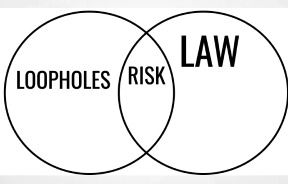“People who are selling actual mushroom products or actual mushrooms online are simply agreeing to take the risk and assuming, correctly or not, that the federal government doesn’t have the resources to chase after them, fully knowing that it’s illegal and that at some point they might get shut down,” says Jodi Green, an attorney at Antithesis Law and an expert in the regulatory landscape surrounding cannabis and psychedelics.
“I don’t think it’s much different from the cottage industry that’s erupted around synthetic and hemp-derived cannabinoids.”
The 2018 Farm Bill, she adds, which legalized the cultivation and sale of cannabis with less than 0.3% THC, “is confusing and ambiguous, state laws are confusing and ambiguous, and companies are looking for a loophole, even if it means creating a less safe product and potentially misinforming consumers about what that product is.”
Such an environment of widespread confusion and ambiguity, she says, is a petri dish for opportunistic web-based companies looking to cash in on the burgeoning psilocybin industry. “They’re assuming they’re going to rake in a lot of profits in the meantime and that it’s going to be worth the risk.”
The bottom line is this: Until laws are passed to regulate the sale of psychedelic products — which probably won’t happen for a while, at least here in the US — vendors are going to keep using vague labels, and buyers are rarely going to have total confidence in the purity (and safety) of the products they’re ingesting. For the time being, an age-old piece of wisdom still applies to anyone looking to dabble with grey market psychedelics: know and trust your source. Also, remember that you’re buying a Schedule 1 drug — despite what online vendors might be claiming about its legality.
Read full article
Websites Claiming to Sell Magic Mushrooms Are Popping Up Across the Internet




















